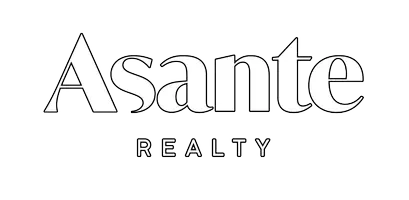California Housing: A Look at New Laws and Their Impact

The new California laws have several major implications for the future of housing in the state:
Increased Housing Supply and Affordability:
Some laws aim to increase the housing supply, which could potentially improve affordability. For example:
- AB-1033 allows local agencies to pass ordinances that enable the separate conveyance of Accessory Dwelling Units (ADUs) from primary residences as condominiums. This could encourage more homeowners to build ADUs, adding to the housing stock. [1]
- SB-976 permanently prohibits local governments from requiring owner-occupancy on properties with ADUs. This makes ADUs a more viable option for renters and homeowners seeking rental income. [2]
- AB-12 limits security deposits to one month's rent, reducing the upfront cost of moving for renters. [2] However, there is an exception for small landlords who own no more than two residential rental properties with a total of no more than four units. [2]
- SB-423 extends the ministerial approval process for multifamily housing developments under SB 35 for ten years, until 2036. It also expands the process to include cities in coastal zones and those without a compliant housing element. This streamlined approval process can encourage the development of more multifamily housing. [3]
- AB-684 mandates that local governments ministerially approve, without discretionary review or a hearing, parcel maps or tentative and final maps for housing development projects that result in ten or fewer parcels and contain ten or fewer units. This streamlined process can expedite the development of smaller housing projects. [4]
Tenant Protections:
Several laws focus on strengthening tenant protections, including:
- AB-1620 allows jurisdictions with rent control to mandate that landlords offer comparable or smaller units on accessible floors to tenants with permanent physical disabilities while retaining the same rental rate. [5]
- SB-267 requires landlords to consider a prospective tenant's "ability to pay" instead of relying solely on credit history when they receive government rent subsidies, such as a Section 8 voucher. [6]
- SB-712 prohibits landlords from banning tenants from owning, storing, and recharging personal micromobility devices in their units, with certain conditions and exceptions. [7]
- AB-1418 prohibits local ordinances that penalize tenants and landlords for law enforcement contacts, essentially overturning local "crime-free" rental housing programs and ordinances. [8]
- SB-567 tightens the requirements for landlords to terminate tenancies under the Tenant Protection Act for no-fault evictions based on owner move-in or substantial remodeling. It also increases penalties for landlords who violate the TPA by improperly terminating tenancies or exceeding the maximum allowable rent increase. [9]
- Transparency and Disclosure: Laws emphasizing transparency and disclosure aim to better inform both buyers and renters:
- AB-968 mandates that those who "flip" residential properties (resold within 18 months of closing) disclose recent repairs and renovations. [10]
- AB-1764 offers the option of providing receipts for tenant screening fees via email with the agreement of both landlord and tenant. [6]
- AB-20 unbundles parking from rent, requiring landlords to sell or lease parking spaces separately from the residential unit. [11]
- SB-478 and SB-537 make it unlawful to advertise prices for goods and services, including short-term lodging, without including all mandatory fees and charges (excluding government-imposed taxes and fees, postage, and carriage charges). [12, 13]
- AB-225 updates the state's Homeowner's Guide to Environmental Hazards booklet to include information on wildfires, climate change, and sea level rise. [14]
- AB-1280 expands the disclosures required in the Natural Hazard Disclosure Statement to include High Fire Hazard Severity Zones (FHSZs), adding to the existing requirement for Very High FHSZs. [15]
Enforcement of Housing Laws:
New laws also strengthen the enforcement of existing housing laws:
- AB-434 tasks the California Department of Housing and Community Development with notifying parties of housing law violations in 13 additional categories, increasing the state's oversight of local housing policies. [16]
- AB-1485 grants the Attorney General unconditional intervention rights in lawsuits alleging violations of state housing laws, empowering the state to more effectively enforce housing regulations. [3]
These new laws represent a significant shift in California's housing policy. While the long-term effects remain to be seen, they have the potential to reshape the state's housing landscape by increasing supply and affordability and bolstering tenant protections. However, the effectiveness of these measures will depend on their implementation and enforcement, as well as the responses of local governments, developers, and the real estate market as a whole.
Categories
Recent Posts










